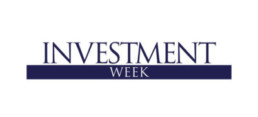The World In A Week - No Change
It came as no surprise that the Federal Reserve left rates unchanged last week. Future rate hikes are likely to remain off the cards for the foreseeable future, at least until inflation rises above 2% and remains above this level for some time, a situation which is unlikely to occur until 2023. The picture in the US is looking a little rosier than first thought, although still in contractionary territory, GDP has been revised from -6.5% to -3.7%. However, the spectre of unemployment and softening data means that growth for 2021 has been revised down from 5% to 4%.
There was also no change at the Bank of Japan, who left rates unchanged. The new Prime Minister, Yoshihide Suga has pledged to remain accommodative and will be ready to introduce further monetary easing if required, but for now, will follow the current expansionary policy set out by Shinzo Abe.
In the UK the Bank of England has shifted its focus to the real threat of a ‘no deal’ Brexit, with preparations for this outcome now underway. Relations between the UK and EU have soured since the Internal Market Draft bill, which contravenes international commitments. This deterioration in communication has also had a knock-on effect to the Bank of England outlook for growth and inflation. Interest rates remain unchanged.
Global equity markets continued in their erratic fashion last week, although to a lesser extent; volatility as measured by the CBOE VIX index also moved lower, although was short-lived, spiking up to over 30 at time of writing, as a result of losses early this morning.
Any opinions stated are honestly held but are not guaranteed and should not be relied upon.
The information contained in this document is not to be regarded as an offer to buy or sell, or the solicitation of any offer to buy or sell, any investments or products.
The content of this document is for information only. It is advisable that you discuss your personal financial circumstances with a financial adviser before undertaking any investments.
All the data contained in the communication is believed to be reliable but may be inaccurate or incomplete. Unless otherwise specified all information is produced as of 21st September 2020.
The World In A Week – Not Plain Sailing
Brexit tensions have managed to hit the headlines once again. It was inevitable that the devil would be in the detail and a particular article within the Brexit deal could leave the UK vulnerable.
Article 10 is causing consternation within Downing Street, as there is a risk that an interpretation of the clause could mean being caught foul of the European Union (EU) State Aid rules. This has meant overriding elements of the withdrawal agreement to placate legal threats from Brussels. It does mean the new bill will have to be voted upon which may open the door for rebellious Conservative MPs to act on their grievances. The waters on which to navigate this path have become extremely choppy indeed, meaning we face yet another uncertainty in the saga of our exit from the EU.
Uncertainty has also been hinted at by Chancellor Rishi Sunak, who has raised the possibility of a delay to the autumn budget. Mr Sunak has requested production of official economic forecasts, which are needed in order to prepare for the budget. What is unusual though, is Mr Sunak asked for these without outlining any tax or spending plans, which are needed in order to call a budget. This has left the door open for a deferment of the autumn budget, which would seem sensible as making any plans when coronavirus cases are on the rise makes any economic forecasting almost impossible to calculate. It is likely the budget announcement will be delayed until the spring but will need to be set before the new financial year in April 2021.
Any opinions stated are honestly held but are not guaranteed and should not be relied upon.
The information contained in this document is not to be regarded as an offer to buy or sell, or the solicitation of any offer to buy or sell, any investments or products.
The content of this document is for information only. It is advisable that you discuss your personal financial circumstances with a financial adviser before undertaking any investments.
All the data contained in the communication is believed to be reliable but may be inaccurate or incomplete. Unless otherwise specified all information is produced as of 14th September 2020.
The World In A Week – Big Tech Bubble
US stocks fell sharply last Thursday and Friday with the high-flying technology stocks experiencing the biggest contractions. Shares for Apple, Facebook and Amazon fell by more than 6%, Alphabet and Microsoft both fell by 4%. The pandemic has seen the major US technology stocks rally well, having reaped the benefits from the new working at home environment. The big sell off at the end of last week has been described as a healthy market correction since tech stocks soared in value in August. Meanwhile, it emerged on Friday that the Japanese conglomerate Softbank bought billions of dollars’ worth of equity derivatives which contributed to the rally in big tech stocks in recent months. Softbank founder Masayoshi Son has performed very aggressive bets on equity derivatives with estimated trading gains of $4 billion. Last week also saw the US unemployment rate fall to 8.4% and another 1.4 million new jobs added to the labour workforce.
Market volatility is expected to continue as the US Election campaigns gather momentum ahead of November’s presidential vote. The polls currently favour former Vice-President Joe Biden with almost 40% of the vote set to be conducted by mail, which has not been well received by President Trump, an avid protestor against a postal election. Despite President Trump’s objections, his 2016 winning election saw a surprise 25% of the election votes cast by mail.
Elsewhere, Brexit negotiations continued to stall amid diverging views on fishing restrictions in place and the levels of governance the UK is willing to adhere to. Talks are to re-commence on Tuesday as negotiators head into the eighth round of talks.
Any opinions stated are honestly held but are not guaranteed and should not be relied upon.
The information contained in this document is not to be regarded as an offer to buy or sell, or the solicitation of any offer to buy or sell, any investments or products.
The content of this document is for information only. It is advisable that you discuss your personal financial circumstances with a financial adviser before undertaking any investments.
All the data contained in the communication is believed to be reliable but may be inaccurate or incomplete. Unless otherwise specified all information is produced as of 7th September 2020.
The World In A Week - When You're in a Jackson Hole... Stop Digging
Last week was broadly speaking a risk-on environment, as Equity market valuations pushed ever-higher in their dramatic rebound from the lows experienced in April. The MSCI All Country World Index (ACWI) of global equities was up +2.3% for the week in local currency terms, which translated to a +0.8% return in Sterling terms as the Pound strengthened against all major currencies, particularly the US Dollar. The same risk-on appetite was observed in Fixed Income markets, as High Yield bonds rallied +0.6% while global treasury bonds retreated -0.6%. Emerging Market Local Currency Debt rallied +1.0%.
The main event on which the markets were focused last week was the virtual meeting of the Federal Reserve, which is typically held in Jackson Hole in scenic Wyoming. At the meeting, Chairman Powell announced a reasonably significant change to how the US central bank would implement monetary policy. This involved taking a more lenient approach to inflation, whereby the Fed would target an “average” inflation rate of 2%; rather than a target of 2%. This of course means that if the Fed undershoots 2% in one period, it can catch up via letting the economy run hot in a subsequent period.
Government Bonds initially sold off on the news, as inflation is the nemesis of a fixed rate of return – however, bonds soon rallied back. This could be symptomatic of a market that has lost faith in the ability of global central banks to research their objectives. If inflation is the desired outcome and monetary policy is proving ineffective, central banks may be implored to ‘stop digging’, and take a back seat to fiscal stimulus driven by government spending.
Any opinions stated are honestly held but are not guaranteed and should not be relied upon.
The information contained in this document is not to be regarded as an offer to buy or sell, or the solicitation of any offer to buy or sell, any investments or products.
The content of this document is for information only. It is advisable that you discuss your personal financial circumstances with a financial adviser before undertaking any investments.
All the data contained in the communication is believed to be reliable but may be inaccurate or incomplete. Unless otherwise specified all information is produced as of 01st September 2020.






The World In A Week - It's Tough At The Top
The sustained rally in global equities we have seen since the lows in March appeared to lose further steam last week. MSCI ACWI lost -1.4% in local currency terms, although this translated into a loss of only -0.1% for GBP investors as the pound sterling continued to weaken against its major trading partners. The fall was led by European stock as well as Emerging market equities. The Japanese stock market proved resilient and returned +0.04% in GBP terms, which is pleasing as this is our largest equity overweight and it tends to perform well in stressed environments.
Within Fixed Income, global treasuries rallied +0.2% and High Yield bonds sold off by -1.7%. The slight fall off in High Yield debt is unsurprising given the remarkably strong rally it has had since April.
Market action such as this has commentators pondering whether we have reached the top of the current rally and are now due a more sustained correction. This view is supported by a number of factors of which we are constantly mindful. The rally has been very strong from the March lows and has been concentrated among a small group of equities, namely large-cap US growth stocks. These FANG+ names began to wobble from their lofty valuations over the course of September and may not prove to be the safe haven they were in the initial February/March sell off. Coupled with a second wave of COVID cases and the forthcoming US elections, investors will likely do well to maintain exposures that are balanced between geographic and style-diversified equity drivers and liquid non-equity risk-reduction components.
Any opinions stated are honestly held but are not guaranteed and should not be relied upon.
The information contained in this document is not to be regarded as an offer to buy or sell, or the solicitation of any offer to buy or sell, any investments or products.
The content of this document is for information only. It is advisable that you discuss your personal financial circumstances with a financial adviser before undertaking any investments.
All the data contained in the communication is believed to be reliable but may be inaccurate or incomplete. Unless otherwise specified all information is produced as of 28th September 2020.